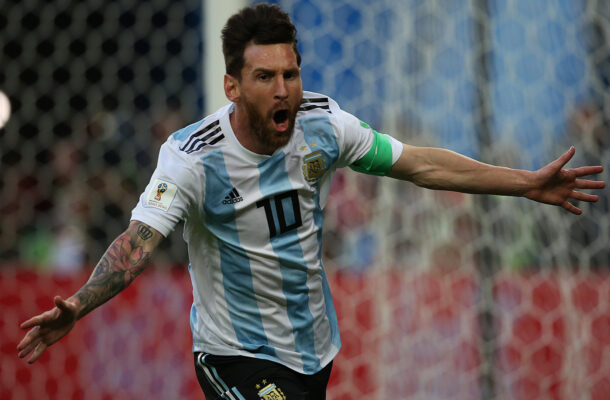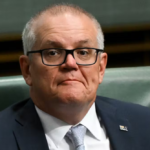Lionel Messi: The man who fell to Earth in Hong Kong

When Lionel Messi failed to take the field in a pre-season exhibition football (soccer) match in Hong Kong, the furious reaction exposed the risks of staging celebrity-centred sports events without the main act.
Messi’s presence had been heavily promoted in the lead-up to the match between U.S. Major League Soccer club Inter Miami, co-owned by another football celebrity, David Beckham, and a local league XI.
Some of the almost 40,000 crowd at Hong Kong Stadium had travelled from as far away as Australia and bought 1,000 $AU tickets for one reason alone – to see the world’s best player in what a football purist would describe as a meaningless match.
Messi sat on the bench alongside another famous footballer, Luis Suárez. Both were carrying injuries. When it became clear that neither, especially Messi, would play for even a token few minutes, the response was apoplectic.
David Beckham, no stranger to public hostility as the recent Netflix documentary graphically showed, was roundly booed as he tried to thank his hosts.
To make matters worse, both Messi and Suárez played just three days later in a match against Vissel Kobe in Japan. This fired up criticism from the Hong Kong government and social media platforms like Weibo, while the aggressively nationalist state organ Global Times sensed an anti-Chinese conspiracy.
Wrong Moves
What lessons can we derive from the Messi Hong Kong fiasco?
Football, the global game, is hyper-commercial at its apex. It has star clubs like Manchester United, Liverpool and Real Madrid who call themselves ‘brands’ and can afford star players. Commercial machines are intolerant of down time, so despite the very congested fixture lists of the top clubs most of them engage in ‘off season’ travel in markets far away from home.
The principal intention of these exercises is exposure and promotion, with football fans and fellow travellers drawn to matches of little consequence by the event buzz. It is disappointing if some of the most prominent players don’t appear, but there are usually enough to spread around and the aura of the club help mitigate buyer’s regret.
Some clubs that are not established brands also engage in international promotional tours if they have one or two celebrities like Lionel Messi or Cristiano Ronaldo, currently plying his trade at Al-Nassr in the extravagantly rich Saudi Pro League.
There is an obvious risk, as in Hong Kong, where a club is not legendary and consists, in harsh entrepreneurial terms, of a leading player or two supported by a cast of ‘bit’ players. When the main attractions don’t appear, it’s hardly surprising that the crowd feels cheated.
This audience experience is more like going to see a live rock band only to find the figurehead lead singer or guitarist isn’t on stage. Or at the theatre where, although there might be murmurs when it’s announced that the understudy has replaced the star actor, loud demands for refunds and abusive cries from the stalls are unlikely.
David Beckham has been here before. When in 2007 his LA Galaxy team came to Australia and played Sydney FC, he was as much the face of the event as Lionel Messi in Hong Kong. ‘Becks’ was also carrying an injury, and it was agreed that if he didn’t play the event would be cancelled or postponed.
He did play, limping from an existing and/or match-acquired injury and treating the 80,000 crowd to one of his trademark ‘bend it like Beckham’ goals. The main point is not whether Beckham played well, but that he played at all.
This is not an entirely new phenomenon. In 1973, I was in a crowd of almost 38,000 to watch my modestly credentialled hometown club, Plymouth Argyle, play an exhibition game against Brazilian visitors Santos. We were all there to watch one player, the bigger-than-Messi of the day Edson Arantes do Nascimento, more commonly known as Pelé.
There was much anxiety that Pelé would not turn up, but he did, scoring a penalty in the process. Mass thumbs down and chants of ‘refund’ were avoided.
Such money-motivated exercises have proliferated and become more sophisticated since Santos’ pioneering international tours with their most precious asset. But today’s tours are no less reliant on the fragile footballing body.
Human footballer or replicant?
It can be hard to remember, especially when watching their video highlight reels – such as one entitled Lionel Messi Super Human Moments – that a galáctico footballer is made of flesh and blood. Most accumulate a range of injuries in professional playing careers that, however lavishly rewarded, are over at an age when most workers are still seeking advancement in their less adrenaline- and capital-fuelled jobs.
At the height of their powers, male football stars resemble Roy, the physically-enhanced, late-model replicant in the sci-fi film Blade Runner. When rendered inert, these men who fell to earth mutate into malfunctioning humanoids, vulnerable to criticisms of arrogance, indolence and ‘obscene’ wealth.
While hardly casting them as victims, it is possible to sympathise with supreme athletes whose capacity to perform in significant competitive sport contests is curtailed by being over-played in travelling circus matches, performing to order for many people who are not even regular football fans.
The Hong Kong hassle served to underline the brute fact that Messi is a very scarce, perishable ‘commodity’ with an eventual use-by date. Despite the reputational damage and financial risk, football fans will still try to catch him when they can, thinking mainly of boasting rights that can be asserted in the present and stored until after his retirement.
This is not the first Lionel Messi scandal. He has, after all, been convicted of tax fraud in Spain. But his legal withdrawal of labour in Hong Kong has received more concentrated attention, guilty of ‘chucking a sickie’ in full view of a big crowd and the media.
David Rowe is Emeritus Professor at the Institute for Culture and Society at Western Sydney University. His books include Sport, Culture and the Media: The Unruly Trinity and Global Media Sport: Flows, Forms and Futures.












